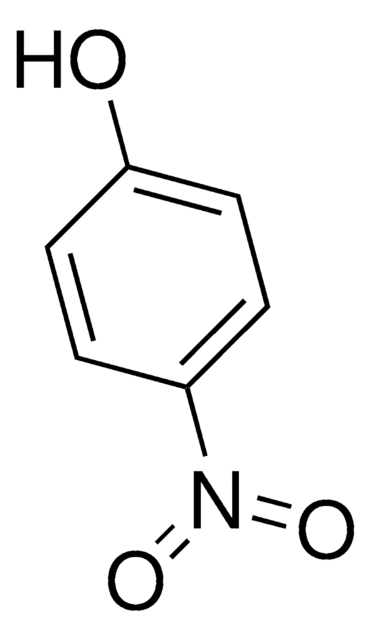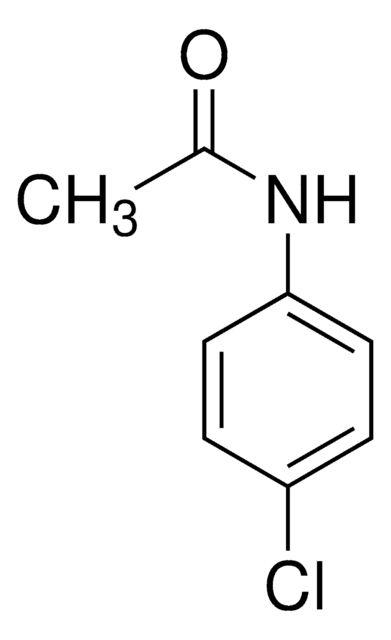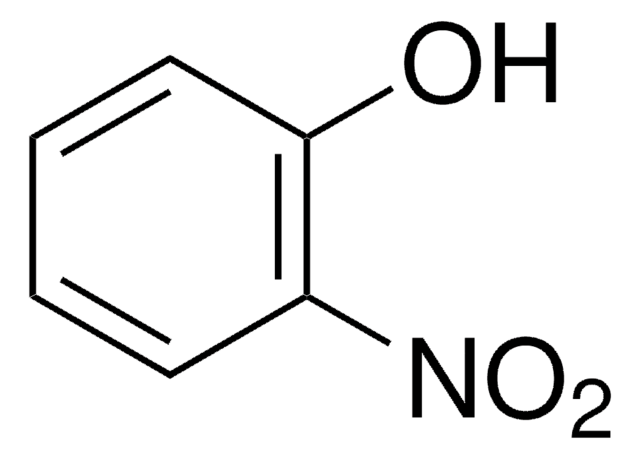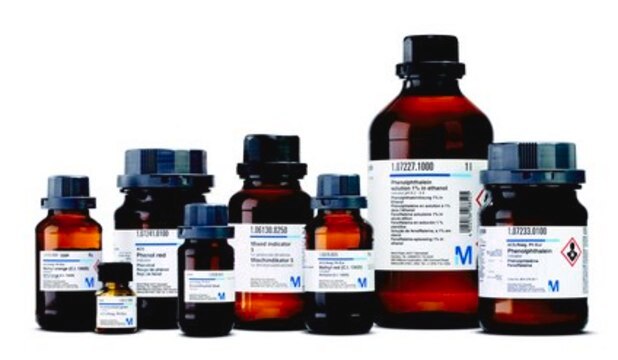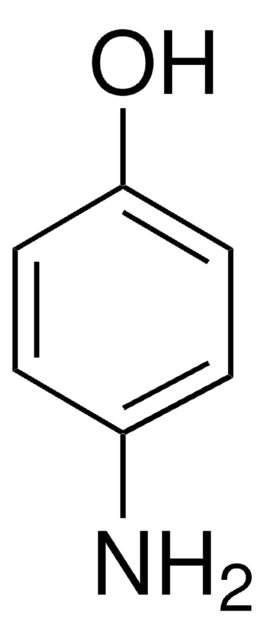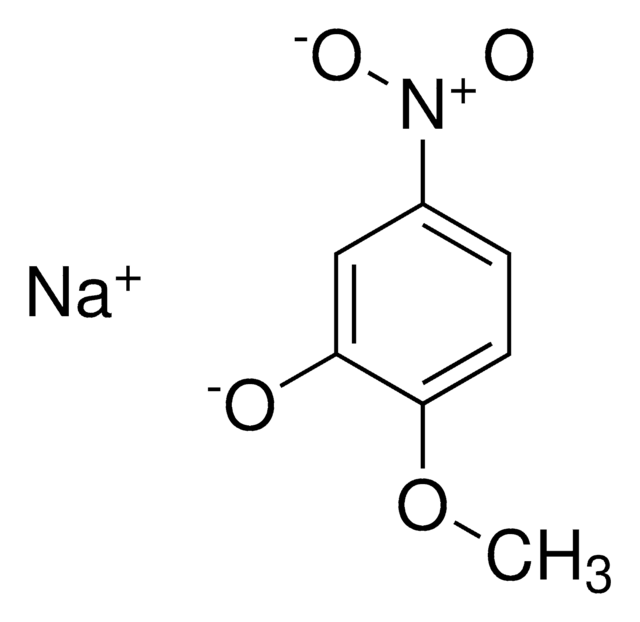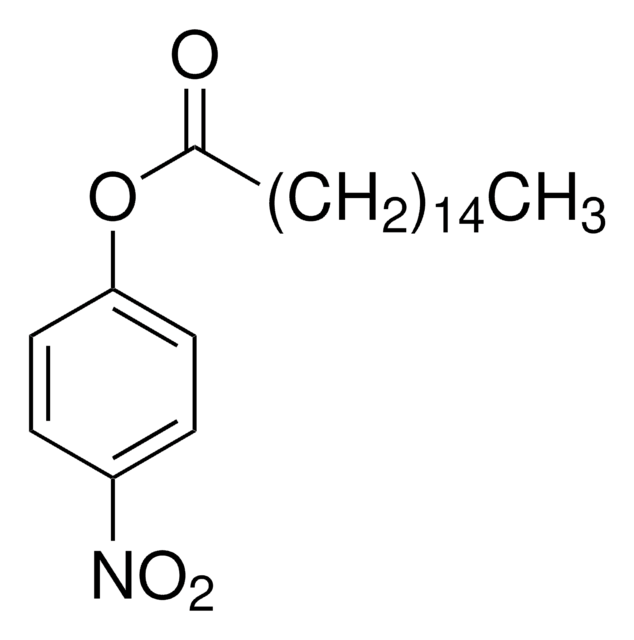35836
4-Nitrophenol
PESTANAL®, analytical standard
Synonym(s):
p-Nitrophenol
About This Item
Recommended Products
grade
analytical standard
Quality Level
vapor pressure
0.6 mmHg ( 120 °C)
product line
PESTANAL®
assay
100% (HPLC)
autoignition temp.
541 °F
shelf life
limited shelf life, expiry date on the label
technique(s)
HPLC: suitable
gas chromatography (GC): suitable
bp
279 °C (lit.)
mp
110-115 °C (lit.)
application(s)
agriculture
environmental
format
neat
SMILES string
O=N(C1=CC=C(O)C=C1)=O
InChI
1S/C6H5NO3/c8-6-3-1-5(2-4-6)7(9)10/h1-4,8H
InChI key
BTJIUGUIPKRLHP-UHFFFAOYSA-N
Looking for similar products? Visit Product Comparison Guide
Related Categories
Application
Legal Information
signalword
Warning
Hazard Classifications
Acute Tox. 4 Dermal - Acute Tox. 4 Inhalation - Acute Tox. 4 Oral - STOT RE 2 - STOT RE 2 Oral
Storage Class
6.1C - Combustible, acute toxic Cat.3 / toxic compounds or compounds which causing chronic effects
wgk_germany
WGK 2
flash_point_f
336.2 °F
flash_point_c
169 °C
ppe
dust mask type N95 (US), Eyeshields, Faceshields, Gloves
Choose from one of the most recent versions:
Already Own This Product?
Find documentation for the products that you have recently purchased in the Document Library.
Customers Also Viewed
Articles
Separation of 2-Chlorophenol; 2,4-Dichlorophenol; 2,4,6-Tribromophenol; 2,4,6-Trichlorophenol; 2,4-Dinitrophenol; Pentafluorophenol; 2-Methylphenol, analytical standard; 2,3,4,6-Tetrachlorophenol; Pentachlorophenol; 4-Nitrophenol; 2-Bromophenol; 2,3,5,6-Tetrachlorophenol; 2,3,5-Trichlorophenol; 4-Chloro-3-methylphenol; 2,4,5-Trichlorophenol; 4-Methylphenol, analytical standard; 2,4-Dimethylphenol; 2-Nitrophenol; 3-Methylphenol, analytical standard; Phenol; 2-Methyl-4,6-dinitrophenol; 2,3,4-Trichlorophenol; 2,6-Dichlorophenol; 2,3,4,5-Tetrachlorophenol
Protocols
Separation of 2-Nitrophenol; Pentachlorophenol; 2-Bromophenol; Phenol; 4-Nitrophenol; 3-Methylphenol, analytical standard; 4-Chloro-3-methylphenol; 2,4-Dichlorophenol; 2,3,4,6-Tetrachlorophenol; 2-Methylphenol, analytical standard; 2,4,6-Trichlorophenol; 2,4-Dimethylphenol; 2-Chlorophenol
HPLC Analysis of Phenols on SUPELCOSIL™ LC-8
Our team of scientists has experience in all areas of research including Life Science, Material Science, Chemical Synthesis, Chromatography, Analytical and many others.
Contact Technical Service